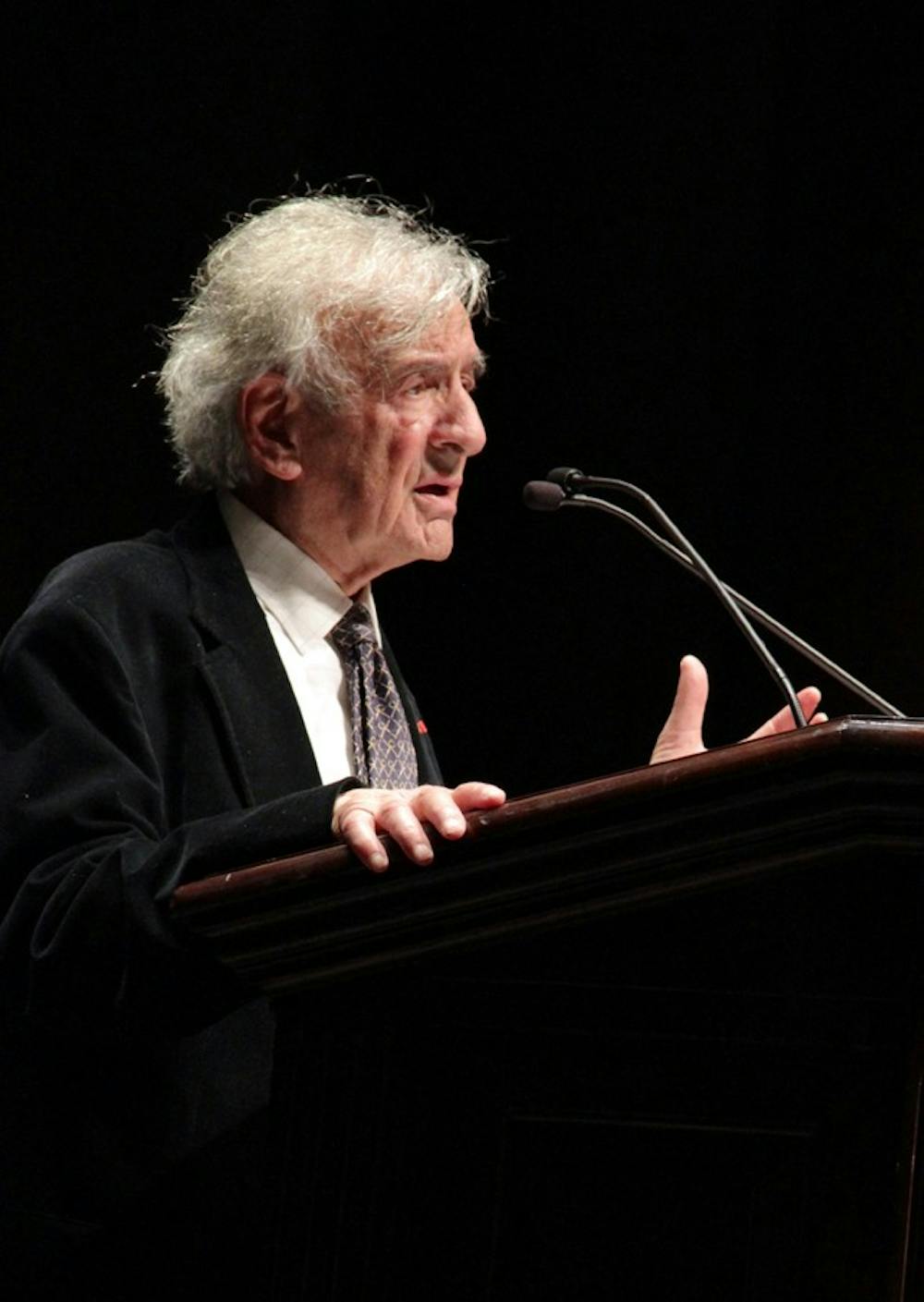Elie Wiesel said he has spent his entire adult life fighting indifference.
The Nobel Peace Prize winner and author of 57 books gave a speech on Sunday that centered on the topic and how people should avoid it.
He spoke to a packed crowd of 1,400 at Memorial Hall, with about 400 additional viewers watching from Hamilton Hall, which also sold out.
Wiesel opened the speech with his favorite Bible verse, “Thou shalt not stand idly by,” a maxim that he said governed all of his activities.
“Nothing good can come out of indifference,” he said. “In fact, nothing can come out of indifference.”
Eli Evans, the founding chair of the Carolina Center for Jewish Studies, introduced Wiesel as a “chronicler of hope” whose “aim is to awaken our conscience.”
Evans likened Wiesel’s stories to his children and the people who listen to them as his descendants.
Wiesel discussed the Holocaust as an example of the potential devastation that inaction can breed.
Wiesel and his family were deported to Auschwitz when he was 15 years old.



